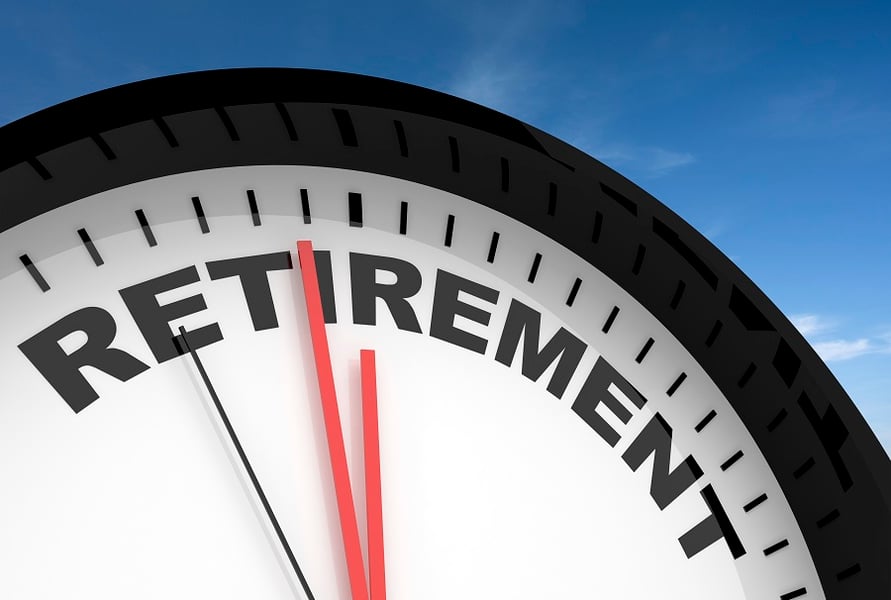

Before the SECURE Act became law in December, today would have been the deadline for financial institutions to notify individual retirement account holders who turn 70½ this year that they would have to start withdrawing money.
Thanks to the SECURE Act, the age for required minimum distributions has been raised to 72. Investment advisers would like to see the age for RMDs go even higher – or be eliminated altogether.
“If it was up to me, I’d get rid of [the RMD requirement] and let people take out as much as they need according to their financial plan,” said Tess Zigo, a financial adviser at Waddell & Reed.
Ms. Zigo said she realizes a balance must be maintained between the government’s need to collect tax revenue on retirement savings that were put into a 401(k) or IRA on a tax-deferred basis and allowing clients to accumulate as much money as possible in those accounts before making taxable withdrawals.
“But what’s good for my clients isn’t always good for the government,” she said.
Another provision of the SECURE Act requires that almost anyone other than a spouse inheriting an IRA liquidate it within 10 years rather than holding on to it for their lifetime. The end of the so-called stretch IRA has caused much consternation among financial advisers and is one reason some of them want to end required distributions.
“Since Congress has effectively capped the tax-deferral period for IRAs, it is only reasonable that they abolish RMDs entirely since their purpose is no longer required,” said Leibel Sternbach, founder of Yields4U.com.
Lawmakers have not yet suggested ending RMDs. Another retirement savings bill, the Retirement Security and Savings Act written by Sens. Rob Portman, R-Ohio, and Ben Cardin, D-Md., would increase the RMD age to 75.
Retirement financing varies from client to client, advisers say. Some need to tap their IRAs before they turn 70, others work beyond 70 and don’t want to touch their IRAs, and some have plenty of money from other sources.
“There’s no single RMD beginning age that makes sense,” said Andy Panko, owner of Tenon Financial. “It’s not possible to come up with the right age because it’s going to be unique to each person in their own circumstances. As a planner and client advocate, I’d like to see it as high as possible.”
Clients have suffered financial setbacks because RMDs have pushed them into higher tax brackets, which resulted in higher Medicare premiums, said Diane Pearson of Pearson Financial Planning.
“The larger window people have between when they retire and when they have to start taking RMDs allows them to do better tax planning and take their distributions out over a longer time,” Ms. Pearson said.
But while that planning is going on, the government would continue to wait to collect taxes.
Scott Vance, owner of Trisuli Financial Advising, said getting rid of RMDs could be paired with a requirement that funds left in retirement accounts be taxed as income by those who inherit them.
“That would serve the purpose of allowing the individual the choice of whether or not to take distributions but still get the tax revenue the government seeks,” Mr. Vance said.
Mr. Sternbach said the government would actually come out ahead if RMDs were eliminated because fewer retirees would have their retirement savings depleted.
“While there would be short-term lost revenue to the IRS, the overall gain to the federal and state budgets and the good it would do the public would far outweigh any minuscule taxes collected,” he said.
That essentially is one of the messages the insurance lobby will take to Capitol Hill to push the Portman-Cardin bill.
“Not everybody needs their RMDs,” said Paul Richman, chief government and political affairs officer at the Insured Retirement Institute. “If they don’t need their RMDs, they should be allowed to continue accumulating savings and earnings on their savings so that they have more funds when they need them because they’re living longer.”

Relationships are key to our business but advisors are often slow to engage in specific activities designed to foster them.

Whichever path you go down, act now while you're still in control.

Pro-bitcoin professionals, however, say the cryptocurrency has ushered in change.

“LPL has evolved significantly over the last decade and still wants to scale up,” says one industry executive.

Survey findings from the Nationwide Retirement Institute offers pearls of planning wisdom from 60- to 65-year-olds, as well as insights into concerns.
Streamline your outreach with Aidentified's AI-driven solutions
This season’s market volatility: Positioning for rate relief, income growth and the AI rebound
